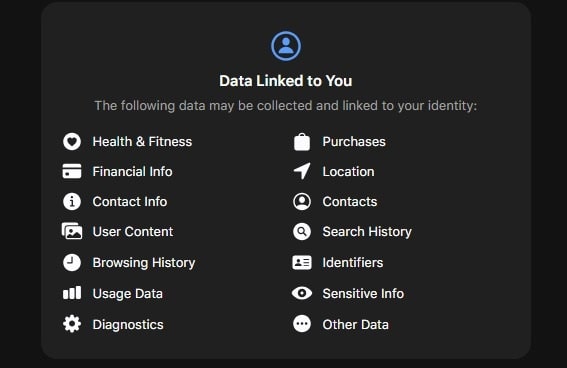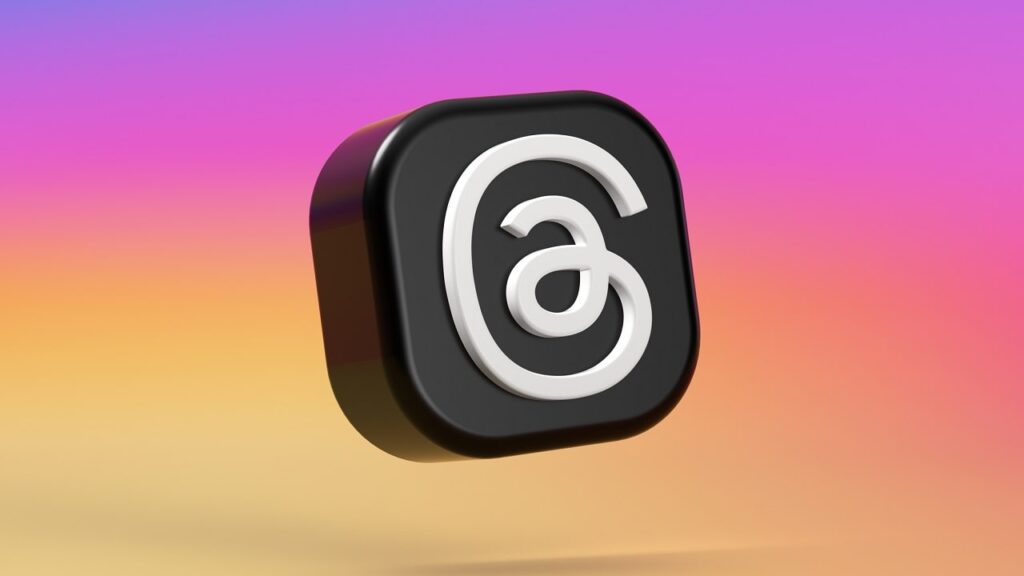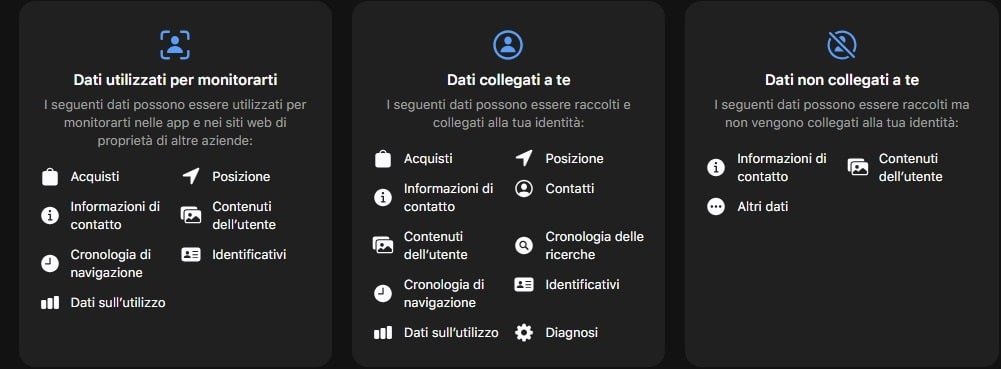The long-awaited alternative to Twitter may have arrived, developed by Meta. It’s called Threads. After apps like Bluesky and Mastodon tried to win over dissatisfied users with Elon Musk’s handling of the Twitter user experience, now Instagram’s engineers are trying too. But like every product of the ex-Facebook company, users are wondering about Threads’ approach to privacy: does it ask for more permissions than Twitter? What data does it collect about us users?
In this article we collect the permissions required for iOS users, which are similar to those for Android – although on the green robot’s smartphones you can provide the permissions one at a time.
Threads vs Twitter, who is more attentive to privacy?
Threads potentially collects a wide range of personal data, as reported in the information available on the Apple App Store. This data includes your purchase history, physical address, browsing history and health information. In addition, they also list “sensitive information” as a type of data collected by the Threads app, which may include information about ethnicity, sexual orientation, pregnancy, religion and biometric data. This data, however, is in the list of data for analytics and app functionality, not marketing.
 The summary of the data requested by Threads (from the US App Store)
The summary of the data requested by Threads (from the US App Store)
Additionally, the data Threads collects falls under the broader privacy policy that covers Meta’s other social media platforms. However, please note that the Threads app also has its own supplemental privacy policy which deserves to be read carefully.
Also, currently those who want to completely delete your Threads account will need to delete your Instagram account as well, as the two are linked. Although Meta has promised that she will fix this situation soon.
We also point out that if you already have the Facebook or Instagram app on your phone, Meta’s data collection will be similar to Threads.
First and third party permissions required by Threads
- Purchases (Purchase History)
- Financial information (Other financial information)
- Location (Precise location, Approximate location)
- Contact information (Physical address, Email address, Name, Telephone number, Other contact information of the user)
- Contacts
- User Content (Photos or Videos, Game Content, Other User Content)
- Search history
- Browsing history
- Identifiers (User ID, Device ID)
- Usage Data (Product Interaction, Advertising Data, Other Usage Data)
- Diagnostics (Crash data, Performance data, Other diagnostic data)
- Other data
Browse online safely with NordVPN – Up to 63% off for 2 years of NordVPN
To these data are added the “sensitive information” we were talking about, which however are only used for product customization and not for marketing.

Analytical and for app features
- Salute e fitness (Salute, Fitness)
- Purchases (Purchase History)
- Financial Information (Payment Information, Credit Card Information, Other Financial Information)
- Location (Precise location, Approximate location)
- Contact information (Physical address, Email address, Name, Telephone number, Other contact information of the user)
- Contacts
- User Content (Email or Text Messages, Photos or Videos, Audio Data, Game Content, Customer Support, Other User Content)
- Search history
- Browsing history
- Identifiers (User ID, Device ID)
- Usage Data (Product Interaction, Advertising Data, Other Usage Data)
- Sensitive information
- Diagnostics (Crash data, Performance data, Other diagnostic data)
- Other data
The information requested by Twitter
Moving on to Twitter, both in the Android and Apple versions, the app keeps a lot of information related to users. This data is used to track users and offer a personalized experience. As the purchase history and browsing history. However, unlike Threads, Twitter does not explicitly list “sensitive information” as one of the categories of data collected for analytics.

For the rest, the data collected by those of Twitter are not very different from those requested by Meta with regard to advertising. However, it requires less analytical and functional data (also because it has fewer features than some Meta apps like Facebook and Instagram). As with Threads, you can block some of these permissions on the Android app.
Permissions required for marketing by Threads
- Purchases (Purchase History)
- Location (Precise location, Approximate location)
- Contact Information (Email Address)
- Browsing history
- Identifiers (User ID, Device ID)
- Usage Data (Interaction with Products, Advertising Data)
- Diagnostics (Performance Data)
Analytical and functional
In addition to the data required for marketing, analytics and app functionality, Twitter asks:
- Browser history
- Contacts
Other reasons

For “other reasons,” Twitter requires:
- Location (Precise location, Approximate location)
- Contact Information (Email Address, Name, Phone Number)
- Contacts
- User Content (Photos or Videos)
- Search history
- Identifiers (User ID)
Furthermore, it collects a series of data not directly related to you (and therefore anonymous) such as other user content (emails and messages), user address and generic “other data”.
How other applications behave
In addition to Threads, we have seen several applications over the past few months aiming to replace Twitter. Or at least to provide an alternative. They don’t yet have the infrastructure and amount of people that Twitter or Meta apps boast. But Bluesky (available on Android and Apple) seems interesting to many because he created it Jack Dorsey, the founder of Twitter, and is currently run by CEO Jay Graber. Bluesky is based on the protocol AT created by Dorsey. Currently, the application is available by invitation only and does not collect all the information on Threads or Twitter.
In fact, you will only find the contact information (email address), the contents you can upload (Photos and Videos, Customer Support and other contents) and the User IDs. It also collects diagnostic data anonymously.
Mastodon (available on Android and Apple) could be the right solution for you. Originally launched in 2016 by Eugene RochkoMastodon uses a decentralized protocol called ActivityPub, like Threads. Mastodon is part of the Fediverse and has a particular approach to privacy: it does not collect any data. No permission required.
These two alternatives therefore collect much less information, even if they risk having fewer users connected to the platform. So the choice is all yours – let us know what you think of these apps in the comments.















Leave a Reply
View Comments